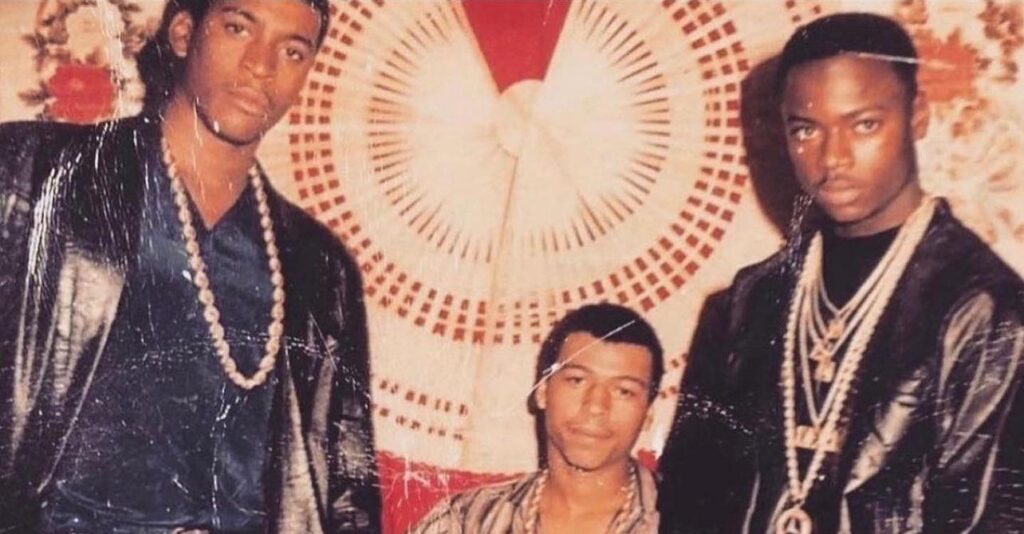Explosive Headline: “The Return of Big Meech : From Drug Kingpin to a New Chapter of Freedom and Redemption”
In the world of organized crime in America, the name “Big Meech” has long been synonymous with drug trafficking, immense wealth, and a lavish lifestyle. But today, this once-feared figure is on the verge of beginning a new chapter in his life, leaving behind a legacy of crime to embrace personal growth and redemption.
Demetrius “Big Meech” Flenory, co-founder of the notorious Black Mafia Family (BMF), has been moved from the confines of a federal prison to a community reentry program, signaling a step closer to his eventual release in 2026. His transfer, which took place on October 15, 2024, marks a significant turning point not only for Big Meech but also for those following his story of crime, punishment, and potential transformation.
Big Meech: A Criminal Empire Built from Hip-Hop Roots
Big Meech’s rise to infamy began in 1985 when he and his brother, Terry “Southwest Tee” Flenory, founded BMF. Initially, the organization was created as a hip-hop label and creative agency, serving as a platform for rising stars in the music industry. Artists like Jay-Z were promoted through BMF’s influence, lending the organization a sense of legitimacy. However, behind the facade of hip-hop culture and entertainment, BMF was actually a massive, sophisticated drug trafficking and money laundering operation.
Federal agents soon uncovered that BMF was laundering millions of dollars in drug profits while distributing vast amounts of cocaine across the United States. The operation, which spanned multiple states, funneled drugs from Mexican cartels into cities like Atlanta, Detroit, and Los Angeles. By the early 2000s, BMF had raked in an estimated $270 million from their illicit activities, cementing Big Meech’s reputation as one of the most powerful drug lords in America.

The Fall of a Drug Empire: Big Meech Behind Bars
The Flenory brothers’ reign came crashing down in October 2005 when the Drug Enforcement Agency (DEA) orchestrated a series of large-scale raids that dismantled their nationwide drug network. By this time, the DEA had been building a case against the brothers for years, using wiretaps, surveillance, and the testimonies of low-level dealers and high-ranking distributors within BMF.
One of the key pieces of evidence in the case against Big Meech and Southwest Tee came from wiretapped conversations, including one where Terry Flenory expressed concerns about Big Meech’s excessive partying, which was putting their criminal enterprise at risk. Despite their efforts to maintain the facade of a legitimate business, the federal investigation eventually led to the arrest of 30 BMF members and the seizure of over $21 million in assets, including cash, jewelry, luxury vehicles, and real estate.
In 2008, Demetrius “Big Meech” Flenory was sentenced to 30 years in federal prison for his role in operating a continuing criminal enterprise, conspiring to distribute massive amounts of cocaine, and laundering drug money. His brother, Terry, received a similar sentence. The once-powerful duo, who had turned a small Detroit drug operation into a multimillion-dollar empire, were now locked behind bars.
A Second Chance: Big Meech’s Path to Redemption
Fast forward nearly two decades, and Big Meech’s story is taking a surprising turn. His transfer from the Federal Correctional Institution Coleman Low in Florida to community confinement is a clear indication that his time in prison is coming to an end. According to legal documents, Big Meech is set to be fully released on January 27, 2026, after serving nearly 20 years of his original 30-year sentence.
What makes this story even more remarkable is that Big Meech’s attorney, Brittany K. Barnett, was able to secure a 32-month reduction in his sentence earlier this year. Barnett, a prominent advocate for criminal justice reform, has expressed her joy at Big Meech’s progress, emphasizing that he has used his time in prison for self-reflection and personal growth. According to Barnett, Big Meech obtained his GED while incarcerated, completed several educational programs, and stayed out of trouble, demonstrating his commitment to turning his life around.
“Two decades is an incredibly long time, and it’s been inspiring to witness the power of hope and resilience,” Barnett said in a statement. “He used his time in prison to focus on personal growth and transformation, and now he has the opportunity to begin a new chapter.”

The Bigger Picture: Criminal Justice Reform and Big Meech’s Story
Big Meech’s upcoming release highlights a larger conversation about criminal justice reform in the United States. Barnett, who has worked tirelessly on behalf of incarcerated individuals, sees Big Meech’s case as a symbol of the potential for change within the justice system. She believes that his story should serve as a reminder that even those convicted of serious crimes have the capacity for redemption if given the opportunity.
“He’s out, but millions more remain trapped inside – there’s still so much work to be done,” Barnett stated. “We need to push for real change, for a justice system that recognizes the dignity and potential for redemption in every individual.”
Indeed, Big Meech’s release is a testament to the ongoing efforts to reduce excessively long prison sentences, especially for non-violent drug offenses. While his empire was built on illegal activities, his ability to reflect on his past and make positive changes offers a glimmer of hope for others seeking a second chance.
The Influence of BMF in Pop Culture: From Crime to TV Stardom
While Big Meech has spent much of the past 20 years in prison, his influence on pop culture has only grown. The Black Mafia Family’s story has been immortalized in the popular Starz series “BMF,” produced by 50 Cent. The show, now heading into its fourth season, has captivated audiences by chronicling the rise and fall of the Flenory brothers and their criminal empire. The series has become one of Starz’s biggest hits, drawing in high-profile guest stars such as Snoop Dogg, Yung Miami, and even Eminem.
Interestingly, Big Meech’s own son, Demetrius Flenory Jr., plays his father in the show, adding a unique layer of authenticity to the portrayal. The success of the BMF series has not only reignited interest in the brothers’ notorious past but also introduced their story to a new generation of viewers who may not have been familiar with their criminal exploits.

Big Meech’s Future: What Lies Ahead?
As Big Meech prepares for his eventual release in 2026, the question on many people’s minds is what he will do next. Will he re-enter the world of entertainment, leveraging his BMF legacy in hip-hop and pop culture? Or will he focus on advocating for criminal justice reform, using his own story as a powerful example of transformation and second chances?
Whatever the future holds, one thing is certain: Big Meech’s name will continue to resonate in the public consciousness. From his days as a feared drug kingpin to his upcoming role as a symbol of redemption, his story is far from over.
In conclusion, Big Meech’s release marks a pivotal moment not only for him but also for the ongoing discussions about criminal justice reform in the United States. His journey from the top of a criminal empire to the threshold of freedom is a reminder that even those with a dark past can seek and achieve redemption. As his attorney aptly stated, “There is nothing more urgent than freedom,” and for Big Meech, that freedom is now within reach.
And as we follow his story, the name Big Meech will continue to echo—whether as a former kingpin or as a man on the path to change—making his eventual freedom one of the most anticipated moments in recent criminal history.






1 Comment